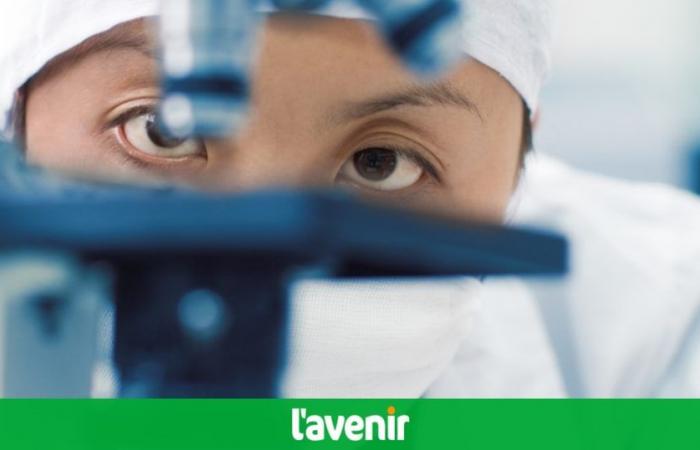In Belgium, breast cancer is the most common: 11,000 new cases per year.
BIG is a non-profit organization that brings together more than 50 academic research groups and around 10,000 researchers. An international group with Belgian roots since it was co-created by Martine Piccart, scientific director at the Jules Bordet Institute. “Twenty-five years ago, she had the idea to create a network that would allow researchers from national groups to collaborate by conducting large-scale clinical trials to answer the most important questions about breast cancer. “, explains Virginie Adam, scientific director at BIG.
Two targeted therapies
This unique mobilization – more than 100,000 participants in clinical trials – has made it possible to achieve some great progress.
The HERA study, carried out on 5,000 patients recruited over four years, made it possible to validate one of the first targeted therapies against breast cancer, the particularly aggressive HER2-positive type. This study was launched in December 2001, and the first results were announced in October 2005, but monitoring of patients continued for an average of eleven years.
“The study focused on trastuzumab, a monoclonal antibody against HER2, a biomarker present in approximately 20% of breast cancersexplains Virginie Adam. Before this molecule, this type of breast cancer had a very poor prognosis. Today, more than 90% of patients survive for at least five years. The interest of targeted therapies is to offer a treatment adapted to the patient, more effective, and less toxic.“
More recently, in 2021, the OlympiA phase 3 clinical trial, led by BIG researchers in collaboration with North American researchers and the AstraZeneca laboratory, demonstrated that a targeted drug, olaparib, is very effective in treating a High-risk early breast cancer in patients with hereditary BRCA1 or BRCA2 mutations. “P More than 420 hospitals, 1,800 patients in twenty-three countries participated in this study. This molecule is now part of the standard treatment for this particular breast cancer.”
The MINDACT study demonstrated that a genetic test could avoid chemotherapy in postmenopausal patients with a low risk of recurrence, sparing them significant side effects.
Hormonal therapy on break to have a baby
Breast cancer strikes earlier and earlier, 29% of women are under 50 years old. Until recently, younger people with hormone-dependent cancer (60 to 70% of cases) had to give up having a child. The POSITIVE study proved that it is possible to suspend hormone therapy treatment. “A break of maximum two years, time to conceive a child, give birth to it, breastfeed it… without increasing the risk of recurrence short termspecifies Virginie Adam. We are moving more and more towards research focused on the needs and expectations of patients.”






